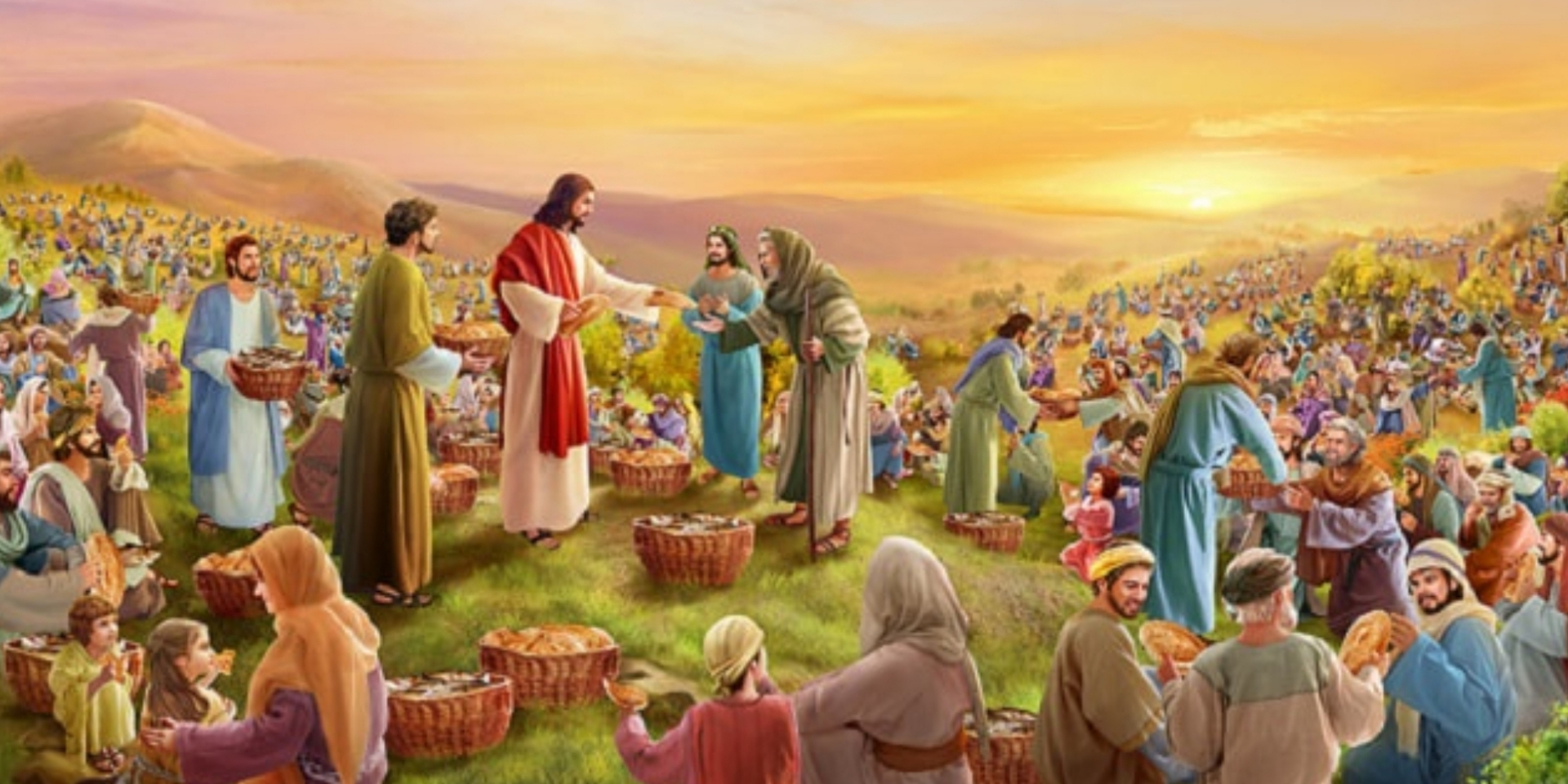
Mark 8:2 (AV)
I have compassion¹ on the multitude²,
because they have⁴ now³ been⁴ with me three days⁵,
and have nothing to eat:
¹) To be moved as to one’s bowels, hence to be moved with compassion, have compassion (for the bowels were thought to be the seat of love and pity).
²) A crowd, a casual collection of people, the multitudes, seems to denote troops of people gathered together without order.
³) Already.
⁴) To remain with, to continue with one
⁵) See below.
Other translations:
I have pity and sympathy for the people and My heart goes out to them, for they have been with Me now three days and have nothing [left] to eat; [AMP] I have compassion on the crowd, because they have been with me now three days and have nothing to eat. [ESV] This crowd is breaking my heart. They have stuck with me for three days, and now they have nothing to eat. [MSB] I have compassion on the multitude, because they have now been with me three days, and have nothing to eat: [KJV] I have compassion for these people; they have already been with me three days and have nothing to eat. [NIV] I feel sorry for these people. They have been here with me for three days, and they have nothing left to eat. [NLT] I have compassion on the multitude, because they have now continued with Me three days and have nothing to eat. [NKJV]
Some further information:
This happened while the Christ was in Decapolis.
This is not the same event as the feeding of the five thousand ( Matt. 14:13-21; Mark 6:32-44; Luke 9:10-17; John 6:1-14 ). In Mark 8:19,20 the Lord refers to both miracles.
I have compassion on the multitude
An expression of that deep emotion in the Redeemer’s heart which always preceded some remarkable interposition for relief. (See Matthew 14:14, 20:34, 1:41 , Luke 7:13 ; also Matthew 9:36 , before the mission of the Twelve; compare Judges 2:18 , 10:16 ).
They have now been with me
In constant attendance.
Day
The word day (Greek: ἡμέρα, hemera) can point to:
▪︎ The natural day, or the interval between sunrise and sunset, as distinguished from and contrasted with the night, the daytime.
▪︎ And to the civil day, or the space of twenty four hours (thus including the night)
The Eastern usage of this term differs from our western usage. Any part of a day may also be counted as a whole day, hence the expression “three days and three nights” could not mean literally three whole days, but at least one whole day plus parts of two other days.
Metaphorically the “the day” is regarded as the time for abstaining from indulgence, vice, crime, etc., because acts of this sort are perpetrated at night and in darkness.
Now let us reflect on this
In this text we meet a Lord Who has pity on the crowd.
That crowd has been around Him for three days and has nothing to eat.
That arouses compassion for the crowd in Jesus.
Again, He will provide food for that crowd in a wonderful way.
All will be satisfied again, and even food will be left.
We are dealing with a rich Savior.
And not only a rich Savior, also with a Savior who can have pity.
We must never forget that.
If you want another example of how He was moved with our fate, I point you to what happened at Golgotha.
Out of pity for all who were given to Him by the Father, He descended into death and paid completely for all the sins of His own.
He has fulfilled all righteousness for His own.
His compassionate heart did not want any of the elect to be lost.
He loved them enough, to take the punishment for them, and to die for them.
Yes, He loved us enough, to take the punishment for us, and to die for you and me.
No, God’s people do not have a rigid, immovable, and merciless High Priest.
On the contrary, we have a merciful High Priest
Twitter: @SchoemakerHarry
Website 1: https://devotionals.harryschoemaker.nl
Website 2: http://bijbelplaatjes.nl



